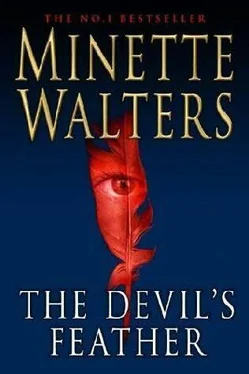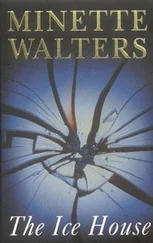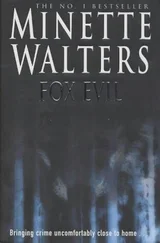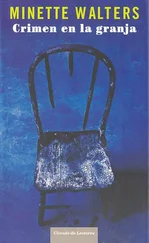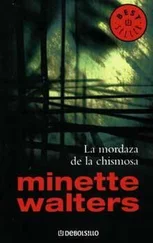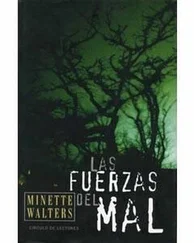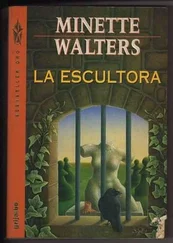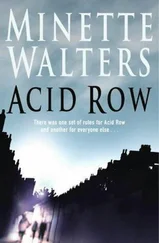“Do you have to do this every time you use it?”
“It helps. The machine’s twenty years old.”
“Is it the only one you’ve got?”
“It’s the only baler.” She jerked her chin at a combine harvester at the other end of the barn. “That’s what handles the crops.”
I turned to look at it. “Dad had one in Zimbabwe.”
“It’s pretty much standard these days. Some people rent them but I bought that secondhand at a farm auction.”
I watched her working. “Why were you using the baler today?” I asked after a while. “I haven’t seen any crops being harvested, so there won’t be any straw yet.”
“I’m taking the hay from the field margins while the weather holds.” She seemed to think it was an intelligent question because she decided to expand on it. “The long-range forecasts are predicting more rain for August so it seemed sensible to bale what we could while we had the chance. We’ll have trouble bringing in the wheat if the forecasters are right…let alone straw.”
We…? “Do you have help?”
She put the lid back on the can of grease and picked up a rag to wipe her hands. “Some. There’s Harry who’s worked here for years and a couple of lady part-timers-one comes mornings, the other afternoons.”
“From Winterbourne Barton?”
“Weymouth.”
“What do they do?”
“Whatever’s on the rota.”
“Ploughing?”
She nodded. “Anything to do with the crops. Harry and I look after the herds, the fencing and the woodland…but we all lend a hand where necessary.” She eyed me curiously as she folded the rag and put it on the grease can. “Don’t they have women farmworkers in Zimbabwe?”
“Thousands.”
“Then why do you look so surprised?”
I smiled. “Because everyone in Winterbourne Barton describes you as a loner, and now I discover you have three people working for you.”
“So?”
“It’s a wrong description of you. I got the impression you lived and worked on your own.”
Her mouth twisted cynically. “That’s Winterbourne Barton for you. They’re completely ignorant about how much work is involved in running a farm, but then most of them have never lived in the country before.” She glanced towards the house. “I’m making some sandwiches for lunch. Do you want to come in while I do it?”
“Will the dogs be there?”
Her dark eyes narrowed slightly, but more in speculation than contempt. “Not if you don’t want them to be.”
I stood up. “Then I’d love to come in. Thank you.”
“You’ll have to move your car in case Harry or Julie comes back. If you park up there”-she pointed towards the left-hand end of the hedge-“you’ll see the path to the back door. I’ll meet you there after I’ve seen to the dogs.”
THE FARMHOUSE WAS a thin, straggling building, constructed in the same Purbeck stone as Barton House and Winterbourne Barton. The core, the rooms around the front door, was seventeenth-century, but the extensions on both sides dated from the nineteenth and twentieth. In floor space it was almost as big as Barton House, but its piecemeal fabrication meant it lacked the clean lines and elegance of Lily’s property.
We entered through the kitchen, which was larger, brighter and better appointed than Lily’s. A plate-glass window gave a view of the garden, which was entirely laid to lawn, without a shrub or flower in sight. Six-foot-high wire fencing ran inside the beech hedge, preventing the mastiffs from escaping, and a large wooden kennel stood in one corner. At the moment, there was no sign of any of them.
“They’re round the front,” said Jess, as if reading my mind. “I’ll let them back into this side when you go. My mother used to have flower borders all the way round but the first puppy I had rooted the plants out. It’s easier like this.”
“Are they always out?”
“If I’m working. When I’m here I have them in the house. If you think of them as overgrown hearthrugs, you might not find them so frightening. Mastiffs are a sociable breed…they love being around people. The only thing they ever do is put themselves between their owners and a stranger, but they won’t attack unless the stranger attacks first.”
I changed the subject rather too abruptly. “This is a nice room, Jess. Much nicer than Lily’s kitchen.”
She watched me for a moment before turning away to open the fridge door. “Do you want to look at the rest of the house while I make the sandwiches? I’m sure you’re curious…everyone else is.”
“Do you mind?”
An indifferent shrug was her only answer.
It was hardly the most fulsome invitation I’d ever had but I wasn’t going to argue about it. The rooms we inhabit say as much about us as how we behave, and Jess was right, I was deeply curious about her surroundings. I’d been told variously that the house was frozen in time, that it was a shrine to her family, full of morbid souvenirs and with an emphasis on death in the shape of stuffed animals. I came across these immediately, to the extent that there were four glass cases in the hall, containing a pheasant, a fox cub, two weasels and a badger.
This was the seventeenth-century heart of the building and I could well believe it had remained untouched for years. The only natural light came from a window halfway up the stairs, but it wasn’t enough to brighten the gloom of the dark oak panelling around the walls. The ceiling was furrowed with ancient beams and the flagstones worn into a visible curvature between the front door and the stairs.
The two rooms leading off the hall dispelled any sense of a house frozen in time. One, which was clearly Jess’s office, had filing cabinets, a desk and a computer, and the other an old sofa and piles of beanbags that smelt powerfully of dogs. Against the longest wall was a steel grey designer hi-fi system with shelf upon shelf of CDs, DVDs, videos and vinyl records framing a plasma screen. I hadn’t thought of Jess as a music, film or television buff, but she clearly was. She was even connected to Sky digital, if the unmistakable black remote on the sofa was any guide. So much for a shrine to the past, I thought enviously, wishing Barton House had more to offer than four terrestrial channels on one miserable little screen in the back room.
I almost stopped there. It’s one thing to be offered free rein of someone else’s house, another to exercise it. I was trespassing out of curiosity or, even worse, a childish desire to put one over on Winterbourne Barton by being able say I’d been invited in. It was the mismatch between what I saw and how it was described that drew me on, for I couldn’t see where the ideas of morbidness had come from until I found a corridor full of photographs of Jess’s family.
There was tier upon tier of the same four laughing people-a man, a woman, a boy and a girl-with variations on the same pictures occurring every two or three feet. Poster-size portraits. Postcard-size snaps. Enlarged headshots extracted from group photographs. Single prints of the children pasted alongside their mother and father to create a laughing group. It was a collage of black, white, sepia and vibrant colour on the continuous canvas of the corridor walls, and it was a glorious expression of life.
I thought of the pictures I had of my parents, the formal ones of their wedding, and holiday snapshots showing awkward smiles or squints of reluctance to be caught on camera. There was only a handful, taken unawares, when they were being entirely natural, and I thought how much better to duplicate the laughing ones than fill the spaces with self-consciousness and solemnity.
“What do you think?” asked Jess’s voice behind me.
I hadn’t heard her approach and turned a startled face in her direction. “Brilliant,” I said honestly. “It’s the way I’d like to be remembered.”
Читать дальше
